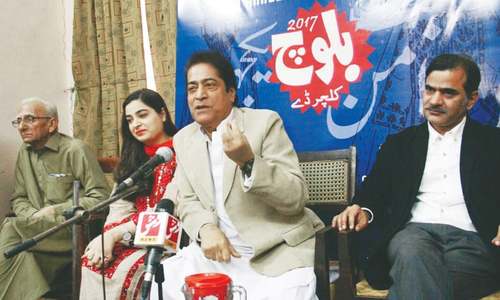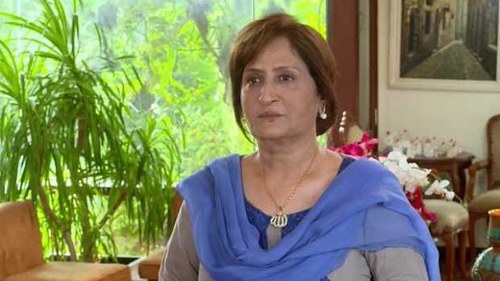Well-known TV and film actor Anwar Iqbal Baloch, who made the first "controversial" Balochi-language film, passed away in Karachi on Thursday after protracted illness, according to family and friends. He was in his 70s.
The senior artist played a number of memorable characters in Urdu and Sindhi dramas. He was especially known for his roles in top PTV serials "Shama" and "Akhri Chataan".
Ahmed Iqbal, Anwar's brother and the owner of Wash TV, told Dawn.com that Anwar had been suffering from multiple diseases. He was diabetic and had stomach issues. Another relative said the actor was battling cancer.
His health deteriorated recently and he was admitted to a private hospital in Karachi where he breathed his last.
A few months ago, Anwar's wife had also passed away, a close relative said. The actor has left behind four daughters.
His funeral prayers will be offered at Baitul Mukarram mosque in Gulshan-i-Iqbal after Isha prayers, and he will be laid to rest at the Mewa Shah graveyard.
Who was Anwar Iqbal?
According to Ahmed, his brother had done his Master's from the University of Karachi and began his career in TV dramas in the 1970s.
He worked in several PTV dramas and films, and made Pakistan’s first Balochi film 'Hammal O Mahganj' — about the Baloch hero Hammal Mahganj who defeated Portugese invaders in the coastal belt of Balochistan including Gwadar.
Ramzan Baloch, a veteran writer from Lyari, told Dawn.com that Anwar was born in Baghdadi, Lyari, and his family subsequently shifted to Muslimabad. His father Haji Iqbal was a politician and businessman who had started a travel agency when PIA launched a service between Karachi and Makran in the 1960s.
About Hammal O Mahganj, Ramzan said Anwar made the film in 1974 at the Eastern Studio and performed Mahganj’s role himself. Its dialogue and script was written by veteran journalist Nadir Shah Adil. who also played a role in the film.
The order for its release in cinemas was passed; however, workers of the then National Awami Party (NAP) launched a massive protest against the film, contending that it might destroy the Baloch culture "on the pattern of the Pakhtun culture" which was allegedly harmed by Pashto films.
Ramzan recalled that the main objection of the protesters was a dance in the film performed by a woman who wore Portugese cultural dress. The protesters allegedly resorted to violence and attacked cinemas, due to which the film could not be screened for up to 30-40 years. However, it was screened for the first time at the Arts Council of Pakistan in Karachi a few years ago.
The writer opined that the controversy over the film was basically the outcome of a conflict between PPP and NAP workers, and that had it been released at the time, the film might have opened avenues for more Balochi films and created more actors and stories.















































